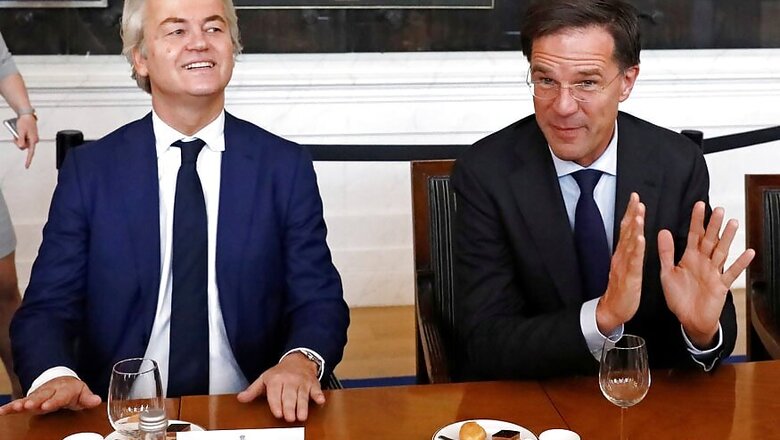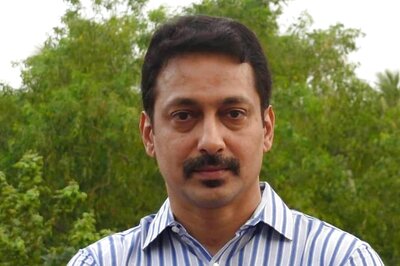
views
The Hague: European leaders breathed a sigh of relief on Thursday as the pragmatic Dutch plumped for the status-quo, voting Liberal Prime Minister Mark Rutte back into power even though the far-right shot up into second place.
"A vote for Europe, a vote against extremists," Margaritis Schinas, spokesman for EU Commission chief Jean-Claude Juncker, said in a Tweet.
It was "a victory for common sense and a great start for Europe's election season," said Holger Schmieding, chief economist with Berenberg bank.
The fact that most Dutch voters had "rebuked the siren songs of the populists may help a little" with upcoming polls in France and Germany, he said.
After flirting for some months with putting anti-Islam MP Geert Wilders at the helm of the country of 17 million people, in the end Dutch voters opted for stability.
With 93 percent of votes counted, Rutte's Liberal VVD party was seen as emerging as the largest party for the third time running with 33 seats, the Dutch news agency said.
That is eight seats down on the last elections in 2012, but puts him in pole position to form the next coalition government to rule one of the largest eurozone economies.
The Netherlands had "said 'stop' to the wrong kind of populism," Rutte told cheering supporters late on Wednesday. The next task was "to unite the country ... (and) succeed in forming a stable government for the next four years."
Wilders however had reason to crow, having boosted his number of seats to 20 from 15 in the last election, according to the ANP count.
"We were the 3rd largest party of the Netherlands. Now we are the 2nd largest party. Next time we will be nr. 1!" he tweeted.
But Rutte is unlikely to ask Wilders and his anti-EU Freedom Party (PVV) to join him in coalition, having been stabbed in the back in 2012 when the MP withdrew his support for the government over austerity talks, forcing snap elections.
All the top party leaders were due to gather for the first time at the centuries-old Dutch parliament to "give their opinions on how the new cabinet can be formed," the parliamentary press office said.
"The fascination for the rise of right-wing populism in Europe is over," said Hajo Funke, from the Otto Suhr political sciences institute, at Berlin's Free University.




















Comments
0 comment